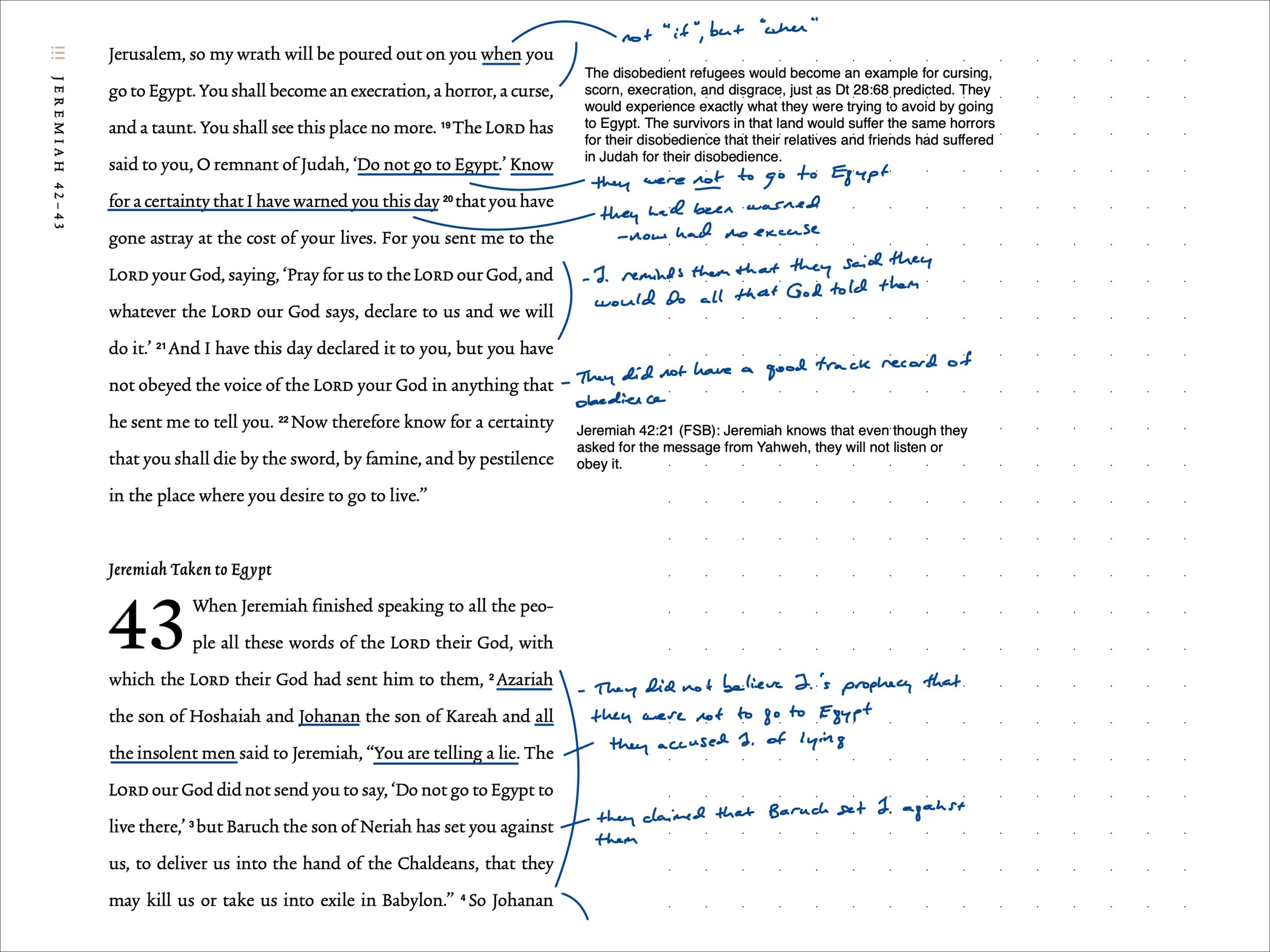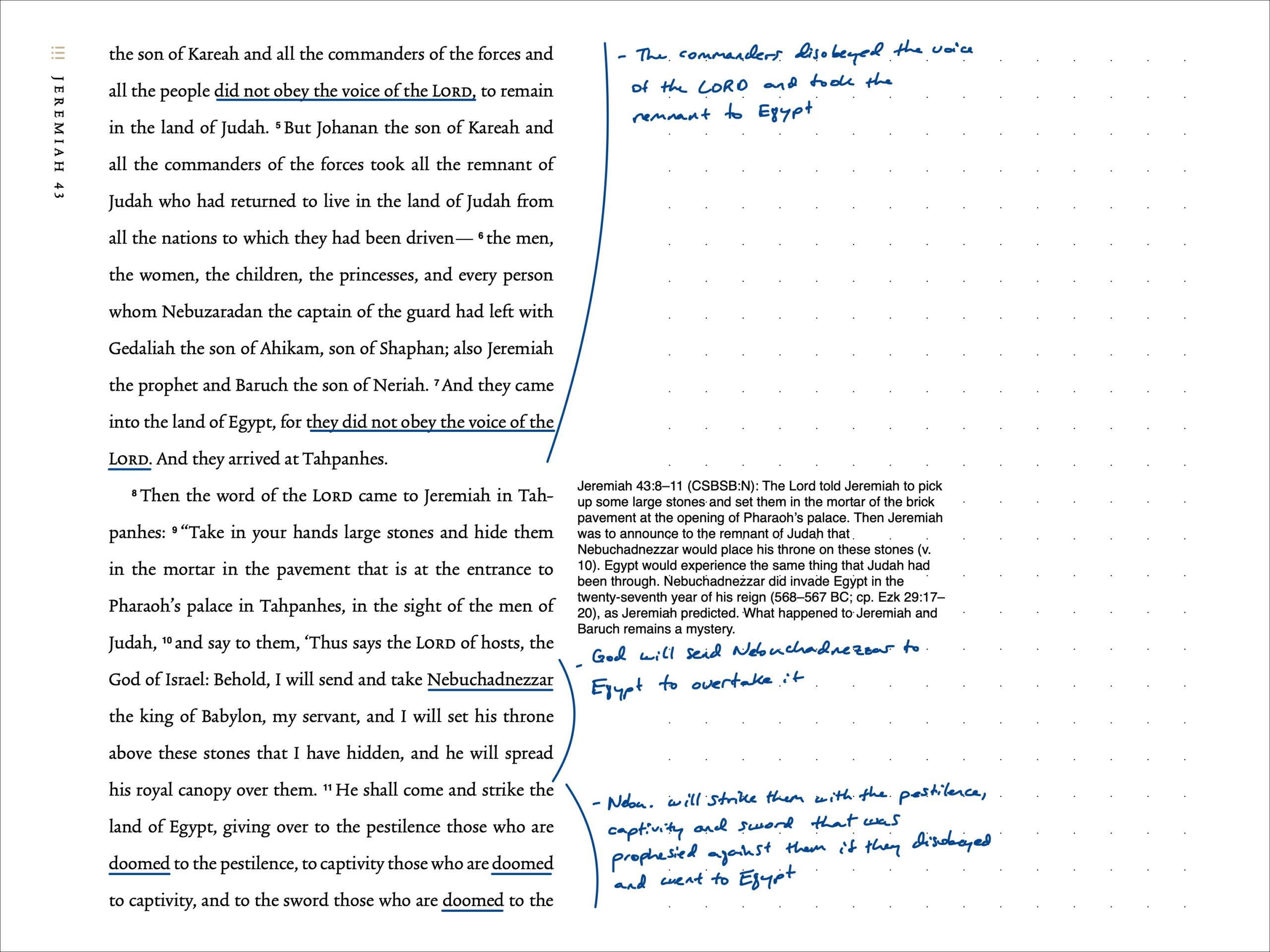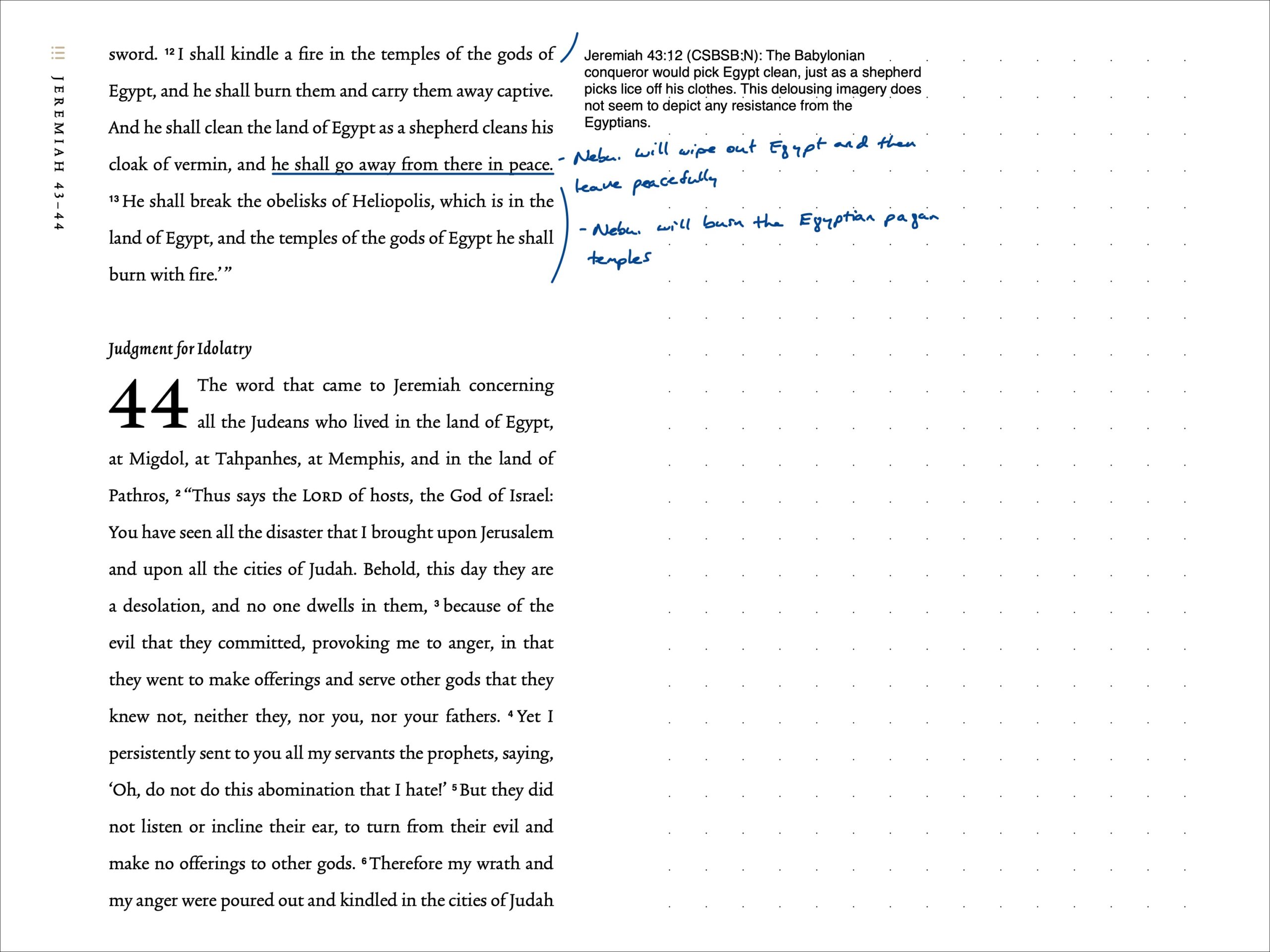| Date | Version | Reading Plan |
|---|---|---|
| @August 5, 2023 | ESV (2016) | ESV Prophets Plan 2023 |
Pericopes
- Jeremiah Taken to Egypt
Notes
The chapter opens with the leaders of the remnant (Azariah, Johanan and “all the insolent men”) responding in disbelief to Jeremiah’s prophecy that they were not to go to Egypt. They accused Jeremiah of lying and claimed that Baruch had set Jeremiah against them to deliver them in the hand of the Chaldeans (Jer. 43:3).
In Jer. 43:4-7, the disobedience of the commanders is carried out in their taking the remnant to Egypt. They led all those who had returned to Judah from all the nations—”the men, the women, the children, the princesses, and every person whom Nebuzaradan the captain of the guard had left with Gedaliah” (Jer. 43:6). They “arrived at Tahpanhes” (Jer. 43:7), which was a village in the eastern Nile delta region of Egypt.
The remaining verses of the chapter (Jer. 43:8-13) are of another word from the LORD given to Jeremiah, that Egypt would be overtaken by Nebuchadnezzar, the king of Babylon. The LORD tells Jeremiah to hide stones “in the mortar of the pavement that is at the entrance to Pharaoh’s palace in Tahpanhes” (Jer. 43:9). God would send Nebuchadnezzar to Egypt who would set his throne over these hidden stones (Jer. 43:10) and strike down the people with the pestilence, captivity and sword as it was prophesied to them. Nebuchadnezzar would pick Egypt clean “as a shepherd cleans his cloak of vermin” and “go away from there in peace” (Jer. 43:12). In the process, Nebuchadnezzar would burn down the “temples of the gods of Egypt” with fire.
As we see from Ezek. 29:17-20, Nebuchadnezzar did invade Egypt in the 27th year of his reign (568-567) as Jeremiah predicted. What happened to Jeremiah and Baruch remains a mystery.
Application
The commanders were clearly instructed to not go to Egypt. In Jer. 42:19, the LORD said to them, “O remnant of Judah, ‘Do not go to Egypt’”. No more explicit or stronger message could have been conveyed. And yet, they still rebelled.
It points to the ever-present theme throughout Bible; the corrupt condition of the human heart to thwart God’s Lordship, to be his own god and to plot his own course. It has manifested in many different ways throughout history but is always rooted in the same soil of sin. It is not lack of God’s presence as so many claim, but that we are futile in our thinking with darkened hearts.
Dispiriting as this is, it makes the good news of the gospel all the sweeter; that He would choose to illumine the hearts of some to truth of His eternal power and divine nature. How praiseworthy is our God that He would so awaken us to His presence, rending us of our selfishness and showing us a better path.
Scripture Journal Notes
Commentaries & Resources Used
- ESV Study Bible. (Wheaton, IL: Crossway, 2008)
- Faithlife Study Bible (Lexham Press, 2016)
- Believer’s Bible Commentary (Thomas Nelson, 2016)
- CSB Study Bible Notes (Holman Bible Publishers, 2017)
- Matthew Henry’s Commentary on the Whole Bible (Guardian Press, 1976)
- The Bible: A Reader’s Guide (Sterling Publishing, 2011)
- The Infographic Bible (Zondervan, 2018)
- ESV Digital Scripture Journal (Crossway, 2019)


